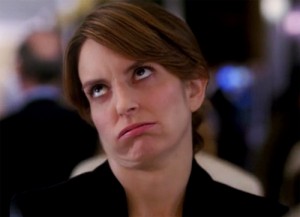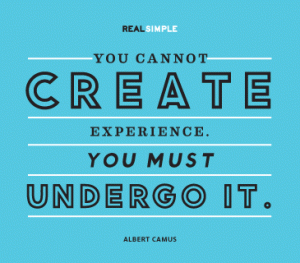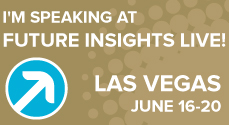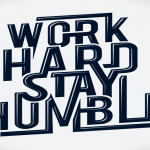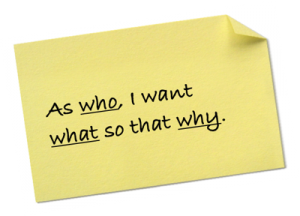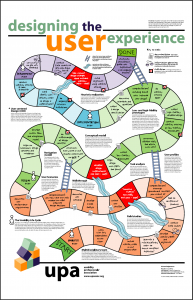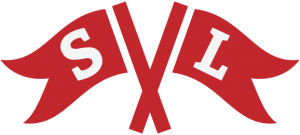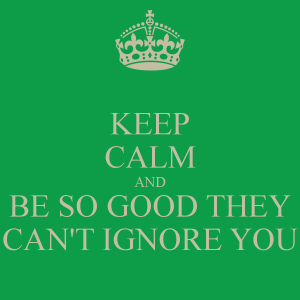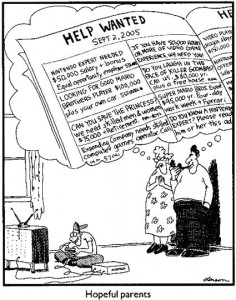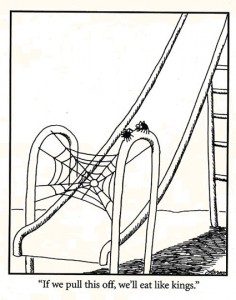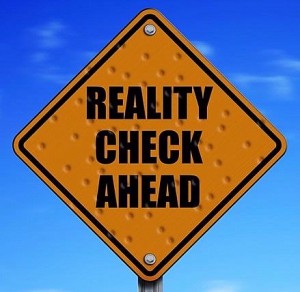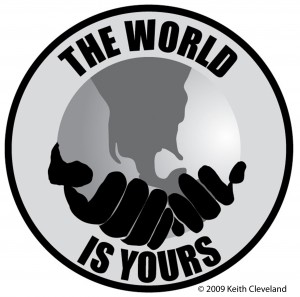How to Love What We Do… Again
There’s something troubling that I’ve noticed happening with many people (not all, maybe not even you) in our industry over the past few years. It’s something that I want to bring to light in hopes that A. I can be enlightened to the necessity or trivialness of this thing, or B. I can help others to enlighten themselves and stop the thing’s progress. So what is the thing? Simply… that we are stuck in our ways, and if we don’t start moving, our industry will never change. I’ve said it before, and I’ll say it again, Newton didn’t lie…

Our World, Today
The current state of where we are is not really a revelation to many of us. We are working doing design or architecture or web “stuff”. Some of us call what we do UX. Some of us claim UX doesn’t exist. Some of us wireframe. Some of us claim we don’t. None of this will be addressed in this piece, for this is what it is, and the arguments will rage on. Instead, I want to point out the bigger issue that I have seen. That is that many of us, no matter what side of the fence we are on in these arguments, HATE where our industry is. We hate our clients (“Two weeks for a complete overhaul of documentation that took us months to put together. #ClientsGottaLoveEm”). We hate our co-workers (“When can you get the UX wireframes done for this project? #UXIsntWireframes”). We hate our careers (“Hired as a UX Strategist, but they just asked me to make a screen ‘better’. #WhatsThePoint”). In short, we hate our state of being, and this causes us so many problems.
What’s the big deal?
First off, in many ways, we aren’t progressing as an industry. What does that mean? It means we spend so much time focusing on the negatives of doing what we do, that we don’t save brain space to focus on how to change the negatives into positives, and, therefore, change ain’t coming.
Secondly, all this negative energy actually zaps our ability to see that WE ARE THE TALENT THAT EVERY BUSINESS NEEDS TO SUCCEED. Obviously, we can’t do it alone, but come on guys, this is our TIME! Everyone wants to be the next Apple. Everyone talks about how facilitating great user experiences will make the business more successful. WE really are in control. But we have beaten the idea of our profession down so much that we believe that we can’t change our environments. We talk to our clients in words that mean nothing to them, and wonder why they don’t “get it”. We take jobs because they show us a glimpse of hope at being the real deal, instead of asking the hard questions that prove we’ll be doing the work we want, and turning down the gig if it’s not the work we want. We blame our lives, our clients, our coworkers, our cities, our companies for holding us back. And, we do this, simply because, we don’t have the energy and courage needed to do something about it.
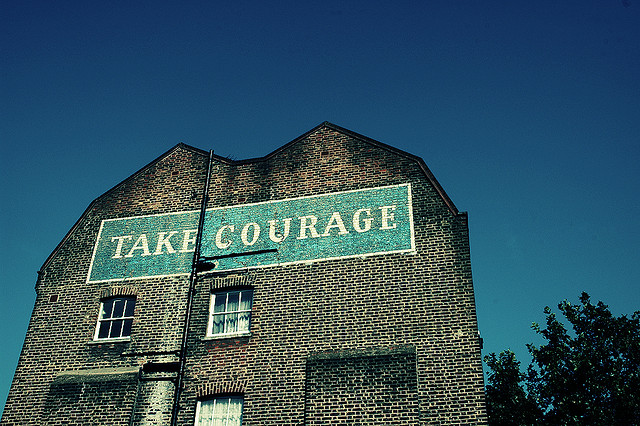
Third, and perhaps worst of all, we isolate ourselves from other disciplines and industries. This is the gravest problem of all because it means we don’t educate ourselves about what information or context these other disciplines and industries need to really understand where we can be of use. We don’t learn about business (yuck, suits), and then wonder why we get screwed in negotiations. We don’t learn about company process, then wonder why our ideas are labeled as being outside of the process. I can go on.
Four, this all means we perpetuate our cycle (wait did I go back to number one again? That’s meta.) The crappy jobs keep getting resourced with talent (us) that is too good for the jobs. The crappy companies keep getting resources (us) that are too talented and smart to work with people that don’t want to hear how we can help. Then we blame the company, the clients, the co workers for the crappy jobs existing… and the cycle persists. We continue to hate the work that we are supposed to love, and live in misery complaining to each other how bad we have it.
Hope Exists
But fear not dear reader, there is hope! And to inspire this hope we turn to none other than Sir Isaac Newton (you may have heard of him). As many of us may remember, Newton was a famous physicist who is known for proving three laws of motion. For our troubles to be cleared, I’d like for us to remember Newton’s first law of motion:
An object at rest will remain at rest unless acted on by an unbalanced force. An object in motion continues in motion with the same speed and in the same direction unless acted upon by an unbalanced force.
Put more simply. Things won’t change unless you act, unless you exert some kind of force. Try this… an object at rest (let’s say the environment we work in, our industry, your clients or your co-workers) will remain as it is unless acted on by an outside/unbalanced force. Here’s the secret… you have to be the force in order for your luck to change.
Now, you may be thinking, “But, wait, what if I don’t WANT to change.” Or “But I have to take these crappy jobs I have a family to support.” Or “I’m not you, Lis, I don’t have the people skills to do it.” Or whatever other argument you can think of. But, I’m here to tell you that all of these are invalid, yes even the family one. Why? Because the definition of the force is flexible. Doing any one of these things can change the environment:
- Ask more questions during interviews to discern if the job meets your goals. Things like “How often do you do usability testing and why?”, “What does user centered design mean here and how is it implemented?”, “Does, and how does, my role help bring a user centered focus to the company?” will help you know if they are for real.
- Network more with people like you to let people know that you are an awesome person. Go to industry and non-industry events that spark your interest. Talk to people about what it is you want to be doing with your knowledge and skills even if you aren’t doing them “for real” at your current job.
- Choose to interview or work for companies whose mission you believe in, and whom believe in a user centered mission. If those companies aren’t in your area, at least start to follow companies whose mission you believe in and try to meet others who work at them when at the next conference or event. Ask these other employees, designer or not, how they got the gig, or get advice on how to manifest your career in the same way.
- Choose co-workers who are awesome like you. Obviously we can’t choose who we work with, but we can choose who we cooperate with and provide favors or extra help to, etc. Prop up those co-workers that you see as awesome.
- Choose to believe you have a choice in your career, because we are all free beings, and we always have a choice.
- Insert any other type of force here.
Further, if you are thinking about how you have already exerted force and created change, but it hasn’t worked… then I would argue that you need to exert a different type of force in order to manifest change in a different way. I’m by no means assuming that none of us are acting, but instead hoping to give you ideas on how to exert force, or act, if you currently are not exerting force, and if you are exerting force and it’s not working, giving you ideas on how to exert force differently.
The main point I want to make is, it’s not all about completely throwing away every part of your career and starting fresh. Instead, it’s simply about using whatever amount of force you can use to affect change in your environment. Even a little force will create some change (it’s a law of physics, remember?!). Of course, Newton’s second law says that the greater the force the greater the change, and that is to be expected. But, the happy news is, the laws of the universe tell us that as long as we are exerting a force, no matter how small, there will be a change in return. Anyone can assess the level of force they are able to exert and then start manifesting change, no matter what your situation is. Newton said so!
It Keeps Getting Better
And, guess what? The more we see the change, the more energy and ideas we’ll have to exert more and better force. It’s a cycle that gets better and better. Then the more force we exert, the more change will come. We’ll venture out and learn more about other disciplines and industries and become better integrated into cultures we like. We’ll stop with the cycle of taking crappy work, complaining about that work, leaving that work only to find more crappy work. We’ll instead force better jobs, ones where we can actually use our talents, to be created. We’ll force jobs that have a better understanding of the help we can provide, thereby using our talents to the fullest. Best of all, with all of us exerting force, our industry gets better. We don’t do it alone! By all of us exerting even a little, itty-bitty bit of force, we are all, in culmination, exerting a lot of force. And, that means, we’ll all see a lot of change and reap a lot of benefits. It means we can finally help in the ways we’ve always known we can.
In the end, it really is about taking responsibility of our fate, and then taking action to change that fate if we are unhappy with where the object is at rest. It really is just about not being the object at rest, if we don’t want to be, but instead being the force that moves that object in the right direction. And once the object is moving, it can’t be stopped… unless, of course, another force is exerted on it :-).
